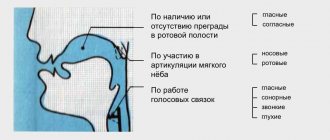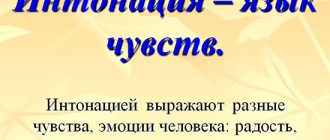Jews speak Hebrew, an ancient native language that differs from Russian not only in the number of letters in the alphabet, but also in the pronunciation of individual sounds. Despite the supposed simplicity of speech, Russians have difficulty mastering Hebrew. Due to the specifics of speech, many people think that Jews burr; in fact, this is a feature of the pronunciation of individual sounds. From an early age, a Jewish child is taught to speak correctly, in the tradition of the people, in compliance with the rules of the language. What seems “clumsy” to a Russian is the norm in Hebrew.
Distinctive features of Hebrew
In Jewish families, it is normal to speak only Hebrew. From birth, children are taught a single language - their native language, which contains certain specifics in pronunciation and construction of words, and reading.
An important difference between Hebrew and its burr is the abundance of guttural sounds. They are used in many Semitic languages. From an early age, Jewish children are taught to pronounce the sound “r” in a burr. This is a national tradition for the people.
The distinctive features of Hebrew from the Russian language also include:
- Jews write, like us, with their right hand, but from right to left;
- Hebrew books should be read from the end, page numbering begins from the last page;
- the Hebrew alphabet is less rich, unlike the Russian one: it contains 11 fewer letters, consonants predominate;
- vowel sounds are highlighted with special symbols (dashes or dots);
- Hebrew does not have capital letters when writing;
- dull and hissing sounds predominate;
- in Russian writing it is customary to connect letters; this rule is absent among Jews;
- 2 letters can represent one sound;
- in Hebrew the letters “ה”, “ח”, “א”, “ע” convey guttural sounds; in Russian it will seem that the person is burry;
- Jews have a literary and a spoken language, the first is usually used only by writers;
- there is no respectful form of addressing “you”, only “you”, which is the norm;
- there is no neuter gender.
Burr is present only among Jews who have lived in their homeland since infancy. Immigrants try to imitate the language of the country in which they are located. It is difficult for a person who has studied Hebrew since childhood to master the Russian language due to a serious restructuring of the speech apparatus. In Semitic groups it is more intense and is in constant tone when pronouncing sounds.
Ask
So, how to recognize a Jew? Ask him about it directly. Most Jews are proud of who they are and do not hide their origins. Many half-breeds do not even ask themselves which half to prefer: Jewish or Russian, Ukrainian, Belarusian... And even a drop of blood is priceless for them. This, by the way, is a normal human reaction. After all, Jews are an ancient people with a rich history and cultural characteristics. So why not be proud of it? Ask them yourself.
But there are cases when people try to hide their Jewish origin. And that's not normal. For example, during the distant years of perestroika, TV presenter Lyubimov was directly asked about this. And the showman swore live in front of the whole country that neither he nor his parents were Jews. Characteristic features, however, were present both in his appearance and behavior. And the surname spoke for itself: Lyubimov is derived from Liberman.
Causes of burr
To understand why Jews pronounce sounds “clumsily”, it is necessary to turn to the specific structure of the speech apparatus. Burr in speaking is not always associated with the peculiarities of the native language. Semites are the same people who have articulation disorders and congenital speech defects.
If you bring a Hebrew-speaking person to a speech therapist and evaluate his speech according to Russian pronunciation standards, in 80% of cases it turns out that he has several speech disorders.
Sometimes burring is not associated with Jewish pronunciation, but with speech pathology. It is important to notice the problem in time to restore normal articulation.
| Problem | Characteristic |
| Phonemic hearing impairment. | Differs from normal physiological hearing. We can talk about violations when a person hears what is said well, but conveys it differently. Pathology is often noticed when a child enters school and begins to write dictations with errors. |
| Bridle size. | A short frenulum affects pronunciation. To get rid of the problem, you need to contact a speech therapist-surgeon who will carefully trim the organ. In the future, it will be easier to master guttural, hissing sounds. |
| Insufficient development of the muscles of the speech organ. | Hypotonicity of the tongue in 90% occurs as a result of improper upbringing in childhood - prolonged use of pacifiers, late complementary feeding. It is necessary to rid the baby of the habit of sucking in time and offer food of varied hardness. |
| Birth defects. | Refers to developmental anomalies in the perinatal period. If the defects are genetic, it will be difficult to get rid of them; a speech therapist will not be able to cope without the help of doctors. |
The environment plays a big role in the formation of speech. The burr of Jews is explained by the fact that from generation to generation children copy the language of their parents. The process is based on the child’s natural desire to imitate an adult. As a result, the baby reluctantly begins to pronounce sounds with the same aspiration, burr, as his family.
Unusual versions of Jewish burr
Almost all Jews are not at all embarrassed by their burr, and even consider it a distinctive feature of their nationality. There are several legends that explain this characteristic of Jewish pronunciation.
- One of the myths says that the Prophet Moses had speech problems from birth. All Jews consider themselves descendants of this biblical character, so burring is not a disadvantage for them, but a confirmation of “purity of blood.”
- According to the second legend, God decided to reward the Israelites, to give them a distinctive feature. This gift was the ability to speak.
Of course, all these mythical explanations for why Jews do not pronounce the letter “r” do not look very plausible. If such a defect causes any inconvenience to a person, he can always sign up for classes with a speech therapist and try to eliminate it.
Is it possible to retrain a Jew
Speech therapists use special exercises to correct burr. It will be more difficult to rid a person who speaks Hebrew from birth of a defect than a Russian. This is due to the structural features of the speech apparatus. Due to the increased tone and tension of the tongue, you will first have to work on weakening it, learning to speak without straining the muscles of the organ. Exercises and special massage help. Before performing basic exercises, speech therapists ask you to stick your tongue out, relax it, and use it to create various shapes: a shovel, a tube, a needle, etc.
You can wean a Jew from burring using the following exercises:
- "Toothbrush". You should open your mouth in a wide smile so that your lips rise slightly above your teeth. Use your tongue to cleanse internally. The teeth are washed from right to left, first at the top, then at the bottom. Repeat the exercise 5-7 times.
- "Sky". Open your mouth wide, as if a person is yawning. Use your tongue to stroke the upper part of your mouth. You need to make movements from the teeth, smoothly moving towards the palate, then change direction.
- "Sweet tooth." Open your mouth wide, hold your lower jaw with your hands so that it is in one position. Using your tongue, lick your upper lip. The movement must be performed with subsequent acceleration. Monitor the position of the lower jaw each time.
- "Turkey Sound" The mouth is also wide open, the tongue sticks out. You need to relax it so much that it rests on your lower lip and covers it completely. At this moment, we compare the organ with a shovel, which should be wide but soft. When you can relax your tongue and place it on your lower lip, you need to perform stroking movements down and up. To make the exercise more effective, it is recommended to add a soundtrack similar to a turkey call.
Every nation is famous for its peculiarities in pronunciation. The French speak in a drawn-out manner with emphasis on the last syllable, while the Germans have a abrupt, “rough” language, which seems strange to a Russian. Jews are characterized by a burr in their pronunciation, which is not a pathology for their nation. The specificity is associated with the abundance of guttural sounds in speech and the manner of their pronunciation.
I was born in Latvia, grew up and was brought up in a Russian-speaking environment, in which there were mainly Jews, Russians and Latvians, my native language is Russian, my professional activity is connected with the Russian language. I speak Latvian poorly, English is even worse, I never liked German for its gutturalness and because it is the language of the nation that exterminated my nation - the Jews. I don’t know any of the other languages – they say there are about six thousand of them.
The Poles do not pronounce the letter “l”, the Estonians do not have hisses, the Japanese speak in such a way that it is not clear to us, Europeans, how we can discern even a word in this singing, and the Jews are credited with burrs. The language of all peoples is formed over thousands of years, and this is not their fault at all, not their misfortune - this is their given. This is how speech is formed, and, accordingly, some physiological characteristics of the body, as a result of which the sound from its depths comes out with its own sound.
Over the course of my life, I have met representatives of many nations - also significantly fewer than anything else on earth, but enough to discover for myself: each has its own characteristics. Not only ethnic “way of life”, but also psychophysical ones. Anecdotes about the resourcefulness of the Jews, the slowness of the Estonians, the punctuality of the Germans, the gallantry of the French, the pedantry of the British, the enterprise of the Americans, the innocence of the Chukchi confirm this discovery of mine.
I have never experienced any phobia towards any nation. I do not recognize the concept of “collective responsibility” at all. Even when everyone raises their hands “for” only because it is scary to pull “against” and “abstained,” everyone must be personally responsible for this. Therefore, if, say, a German appears in my environment, I do not expect punctuality from him until he shows it; If he’s Estonian, I won’t be surprised by his speed and temperament. And so on.
And yet I can say: of all the nations, the Russians are closest to me. I don’t forget that I am a Jew, I worry about everything that happens to my “titular” nation, but the Russians are the nicest of all. Either because, in connection with the environment and language, I feel the Russian person more subtly, more accurately, or because what distinguishes the Russian person from everyone else is closer to my nature, my psychophysics. I am punctual, but not like a German; my simplicity is clearly inferior to the simplicity of the Chukchi; I can be practical, but I will definitely lose to the American.
Russian people prefer the sensual sphere rather than the speculative one. Russian, in my opinion, means taking off your shirt in a critical, almost hopeless situation, slamming it to the ground and grunting: “Ehma, what’s English to us!” - And save the situation.
This is me.
It seems to me that historically, even for the Russians, everything worked out contrary to reasonable expectations.
And now, if all the previous does not cause objections, to the most important thing.
There are people who are talented and others who are not. This is observed in every team. Some talented people recognize their talent, others do not want to: maybe they have higher demands, or maybe just out of envy.
In every community, from a small community to a state, there is an elite. The elite can be intellectual, political, cultural. The elite is the vanguard; Where the vanguard goes, so do all the other members of the community. Sometimes the avant-garde shows the way not only to this group, but to all of humanity.
Someone in China invented gunpowder - now shots can be heard even from the depths of the impenetrable African jungle, where they don’t even know a bicycle. By the way, the bicycle was invented by a German professor; American Fulton - steamship; the Australian Rutherford exposed the atom for us; and the Russian Sakharov invented the hydrogen bomb. The Englishman Shakespeare embraced everything with his drama – everything! - the gamut of human passions, all the rest of the drama is just the elaboration of its details. And the Irishman Joyce wrote a novel that could hardly be read by more than a hundred readers in the world, but it became a model for all world literature of the twentieth century.
What I mean is that it is difficult to find a nation that has not made its contribution to the development of all humanity. And this also confirms the idea that every nation has its own geniuses. But no matter what anyone says, the Jews contributed the most.
I really wanted to put an exclamation point at the end of this phrase, but the pathos of my material lies precisely in the fact that I don’t see anything special in it. Those. It is, of course, great that my nation has such a reputation, but for me it is not surprising that some nation is more talented than others. It could not be Jews - anyone. Just as gunpowder could have been invented in Ireland, and the novel “Ulysses” could have been written by a Chinese. But it turned out the way it turned out.
In the collective called “humanity” there are more talented and less talented members. There are members distinguished by noticeable slowness, others by punctuality, others by enterprise, and so on; Let's go back to what I listed above. Humanity is a collective in which each member can be likened to an individual. And of course, there must be one about whom everyone could unanimously say: yes, this one is a talent! Talent! Genius!!!
Although no, not all. As in any group, there may also be members with their own dissenting opinions. Some are more strict, others are less mature; some are simply out of elementary envy...
Well, here's why it's like this: out of every six Nobel laureates, five are ethnic Jews? Like some outstanding discovery, so is a Jew. From Newton to the Barrier, from Karl Marx to Sonya - the Golden Hand.
But that's why! It happened that way. Such a fate befell this member of the human collective. In which, of course, it cannot be done without those who are filled with fierce envy, turning into hatred, into the desire to destroy the irritant.
There are two concepts: xenophobia and anti-Semitism. It seems that the first includes the second. But examples from history show that xenophobia is a property that can be inherent in a representative of any nation in relation to any other nation. And anti-Semitism is inherent in everyone in relation to one thing - Jews. Why? The worst? Or the best? But in any case, there is something “very” about them that distinguishes them from everyone else and can irritate everyone. German punctuality? She's not annoying. French frivolity? Welcome. Russian openness of soul? Come on, let him walk around wide open.
Nothing can irritate more than... talent. Because talent is something that cannot be achieved by any effort. Either he exists or he doesn’t. Either I accept it with respect, using it whenever possible, or I... don’t know what to do with “this”. But something needs to be done, because talent is always an extreme: either talent, or what is opposed to it. Talent is a bad conversationalist. You can come to terms with talent, accept its arguments and follow it. Or sweep it out of your way, destroy it.
For thousands of years, Jews were not a state, but a diaspora of the state that accepted them with all possible hospitality. Maybe this determined their special genetics, which was formed in such difficult conditions for the people. Maybe long before that, from the proximity to the Sumerians. I am not a geneticist, I don’t know how and how quickly geographical and historical circumstances influence the characteristics of a people. But for some reason, the dark skin of Africans and the narrow eyes of Asians accept everything with understanding - this is how the time and place decreed; but I don’t want to accept and recognize the exceptional talent of Jews.
By the way, another irritant has appeared for the world community - America. Actually, it’s funny when you hear “I hate Americans.” The question is, why hate them? For the most developed economy? Because everything new comes to all of us from their shores, and not vice versa? Why did we all get into their jeans (which were also invented by the Jew Levi Strauss)? Why do we buy their cars, fight for recognition at their Oscars, send our children to learn from them how to survive in this difficult world?
Here is the same diagnosis of rejection: envy.
Often latent, not understood by the bearer of this feeling, but just as unreasoned, spontaneous, wild, like everything that nature has endowed us with beyond our desire and our will. It is there, and that's it. But America also exists - and nothing can be done about it. There is Jewish talent - and the most reasonable thing is to make it the property of the entire human collective, and not to accumulate envy and the desire to destroy it. This has never led to anything useful for humanity. But there were so many attempts! It's time to take them into account. IF YOU LIKED THIS MATERIAL, YOU CAN HELP THE SITE >> Also read - perhaps on the topic:
- Unbearable boredom, or Why Soviet power fell
- Olga Pogodina-Kuzmina. Adam's apple. Excerpt
Nose
So, what are the characteristic facial features of Jews? The first thing people always pay attention to is the nose. Moreover, many believe that this sign alone is enough to consider a person a Jew. The famous “Jewish shnobel” begins to bend from the very base. Thus, the Israeli anthropologist Jacobs described this phenomenon in detail: “the tip bends down, resembling a hook, and the wings are raised.” If you look from the side, the nose resembles the number 6 extended upward. People call this nose the “Jewish six.”
×
However, based on this feature alone, it is impossible to say with certainty that a person is a Jew. If you look at the portraits of Russian writers, it turns out that almost all of them had big noses: Nekrasov, Gogol, Karamzin, and even Turgenev. But it is known for certain that they were not Jews.
In fact, Israelis can have a wide variety of noses: fleshy “potato” noses, narrow ones with a hump, straight ones, long ones with high nostrils, and even snub noses. So, the nose alone is far from an indicator of “Jewishness.”
Common Mistakes
There is an opinion that there are certain signs that only Jews possess (characteristic facial features) - a huge nose, black eyes, thick lips. We've already dealt with the nose. As for dark eyes and full lips, these are the most common Negroid characteristics. And the Negroid admixture is characteristic not only of Jews, but also of people of other nationalities. For example, as a result of the union of a Mongoloid and a Negro, the same traits can be obtained. This admixture is often observed among Greeks, Spaniards, Portuguese, Italians, Arabs, Armenians, and Georgians.
Another popular misconception is that Jews have dark, curly hair. Everything is the same here. The Negroid trait is obvious. On the other hand, the biblical Jew David was blond. This is already a Nordic admixture. And look at the Russian singer Agutin - a typical Jew, but by no means dark-haired.
Choosing names
With names, everything is much more complicated - they can be anything. Of course, there are purely Jewish ones. For example, Leo (derived from Levi), Anton (from Nathan), Boris (from Boruch), Jacob, Adam, Samson, Mark, Abram (from Abraham), Moses, Nahum, Ada (Adelaide), Dinah, Sarah, Esther ( from Esther), Faina and others.
But there is also a separate category of names that are of Israeli origin, but Russian people wear them even more often than the Jews themselves. The characteristic features of such names are the ending -il (Daniel, Michael, Samuel, Gabriel), as well as the biblical meaning (Mary, Joseph, Ilya (Elijah), Sophia).










